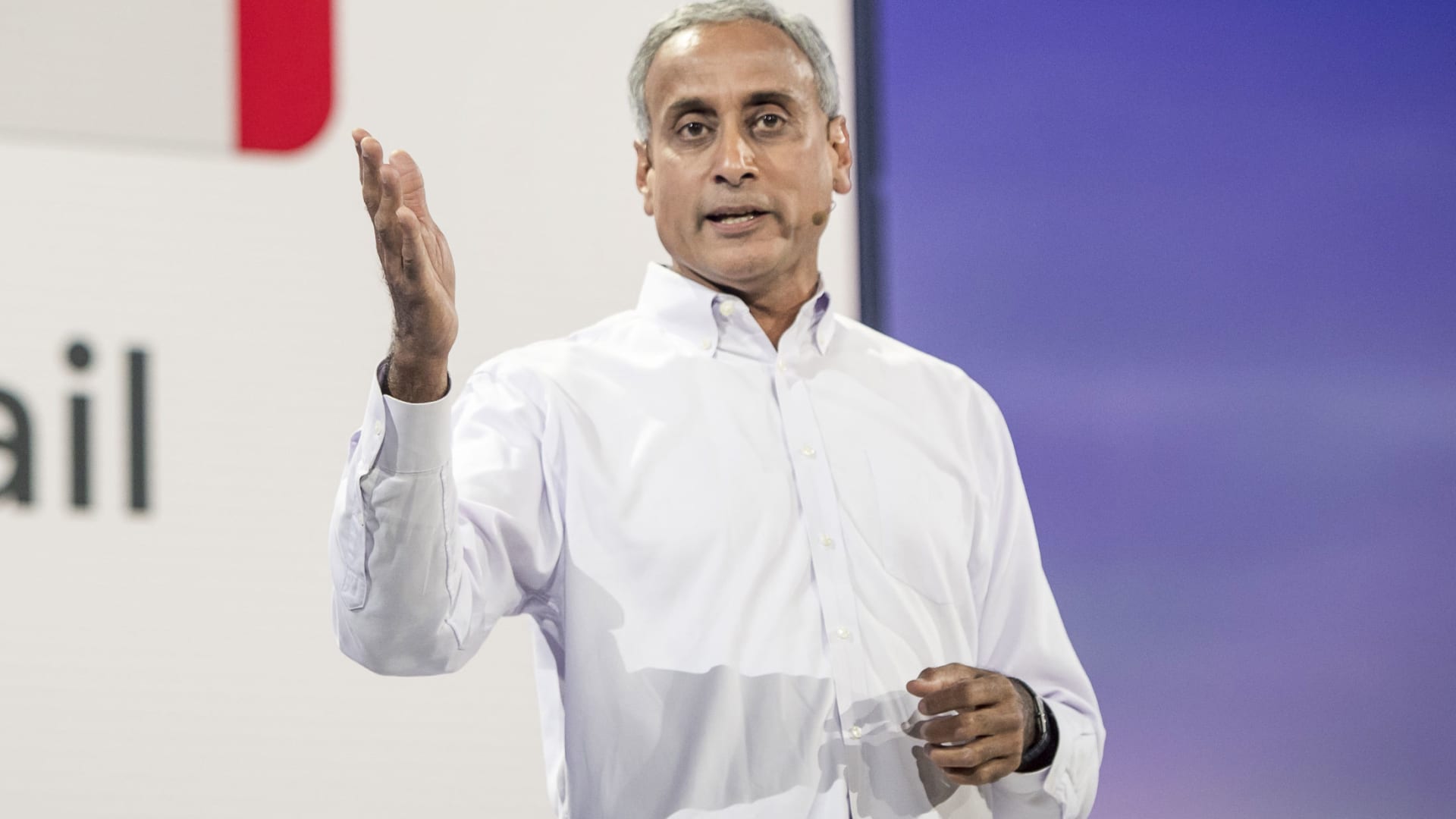

Prabhakar Raghavan, of Google Inc., speaks during the company’s Cloud Next ’18 event in San Francisco, California, July 24, 2018.
David Paul Morris | Bloomberg | Getty Images
As Google fights claims that it violated antitrust law to maintain its online search dominance, the company’s search lead testified Thursday that young users mock Google as old-fashioned.
Prabhakar Raghavan, a Google senior vice president responsible for for products including search, ads and commerce, said that some young users have referred to the search engine as “Grandpa Google.”
He explained that the term refers to the idea that while Google might be fine to ask a question about homework, young users would prefer to take their more interesting queries elsewhere.
It’s not entirely clear where Raghavan saw the term. Searching “Grandpa Google” on social media sites like TikTok yields videos and memes of grandparents searching for information.
The comment is indicative of a key theme of Raghavan’s testimony, which marked the official first day of Google’s presentation of its defense against claims from the Department of Justice and a group of state attorneys general that it violated antitrust law. The government spent over a month presenting its case alleging that Google illegally leveraged its dominance to maintain its monopoly in search. It’s defined Google’s competitors in search as a handful of much smaller general search engines like Microsoft’s Bing or DuckDuckGo.
But Raghavan testified that threats to Google’s position are very much real and extend far beyond competitors that closely mirror its functions. He said that innovation in the search engine is what has allowed it to maintain market share.
Raghavan testified that Yahoo’s search dominance at one point seemed insurmountable. But, he said, Google was eventually able to surpass Yahoo through better ranking as well as innovations in the search product. For example, Google has conducted research that’s led to features that let it directly answer users’ questions, understand voice queries and lens queries, where users search via a photo they take.
Now that most consumers have a smartphone, users often conduct searches within their own apps, Raghavan said. He gave the example of booking a vacation, where users might use a variety of apps to book their flights and amenities.
“We don’t see users carrying through these journeys entirely on Google,” Raghavan testified. “They go in and out and spend a lot of time on these other platforms.”
When it comes to specialized vertical search engines, such as Yelp or Expedia, Raghavan said, “I see myself as competing with them every day.”
Commercial search is also important to Google, Raghavan said. Amazon is one of the companies that he said he closely watches.
“For Google to be a successful company, we should be good at answering any kind of query, including commercial queries,” Raghavan said. “I believe that if we become second class … we become irrelevant over time.”




